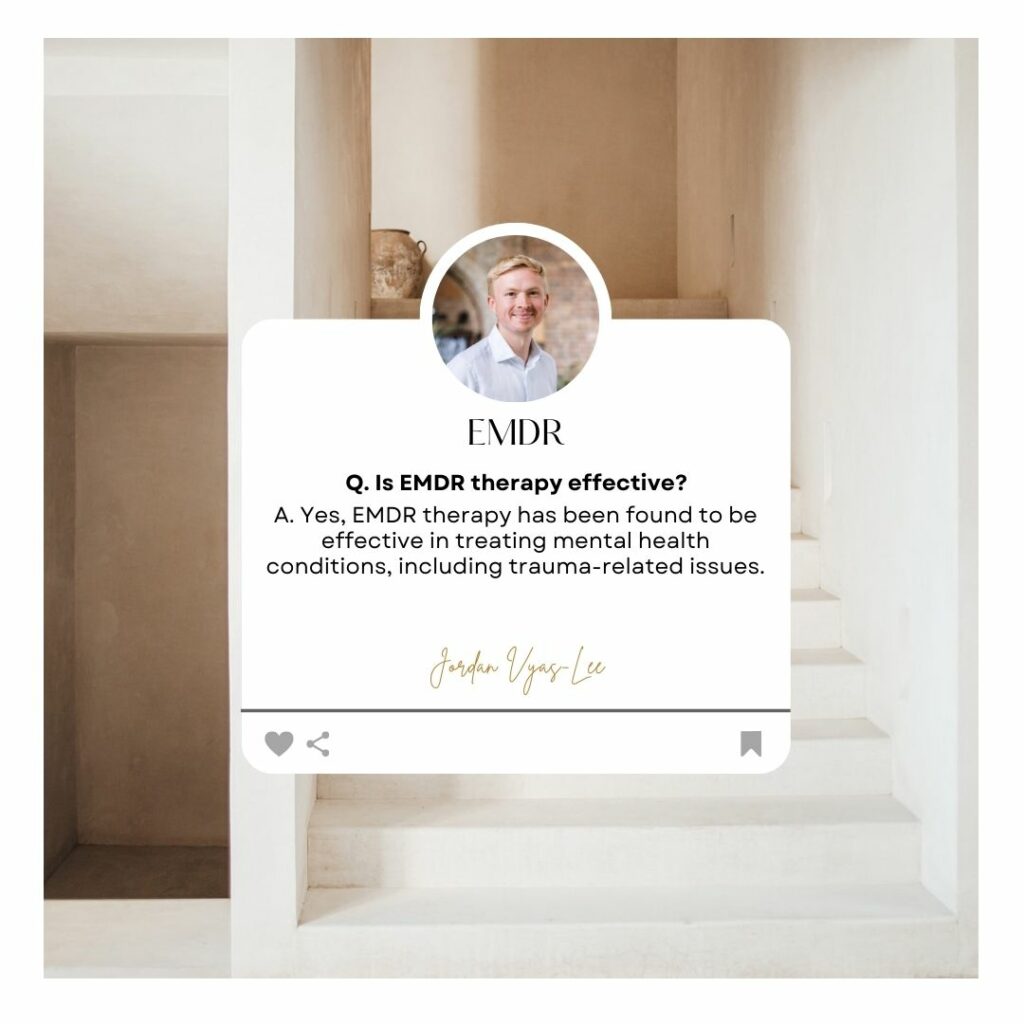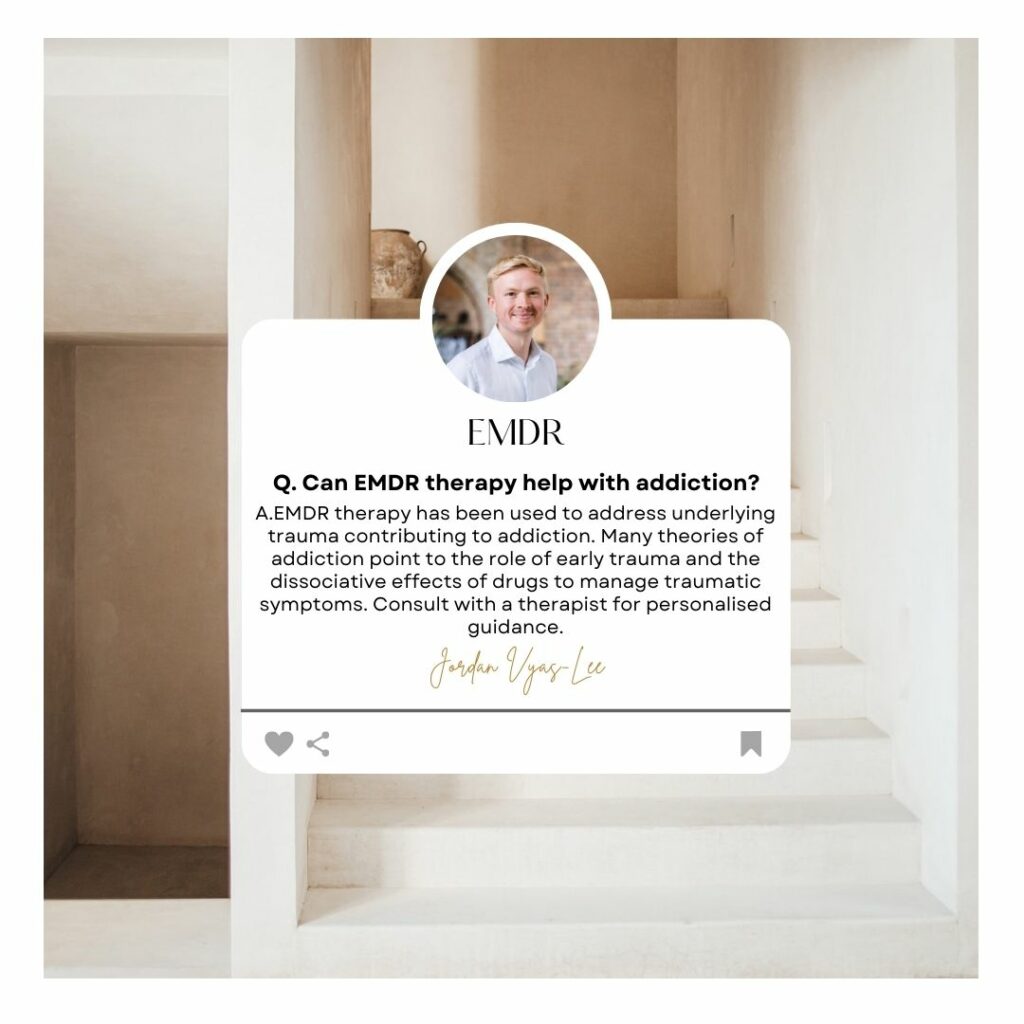EMDR Therapy FAQs

Q. Is EMDR therapy effective?
A. Yes, EMDR therapy has been found to be effective in treating mental health conditions, including trauma-related issues.

Q. Is EMDR therapy covered by insurance?
A. Normally yes, but coverage varies and it is recommended to check with your insurance provider to determine if your plan covers the treatment.

Q. Is EMDR therapy hypnosis?
A. No, EMDR therapy is not hypnosis. EMDR involves a deep and sensitive exploration of traumatic experiences, and a method of reprocessing key events by harnessing bilateral stimulation.

Q. Is EMDR therapy legitimate?
A. Yes, EMDR therapy is a legitimate and evidence-based psychotherapy approach.

Q. Is EMDR therapy scary?
A. EMDR therapy is generally not considered scary. Skilled providers help clients to navigate through distressing memories in a highly controlled way.

Q. Is EMDR therapy safe
A. Yes, EMDR therapy is safe, especially when conducted by trained and accredited therapists.

Q. Is EMDR therapy expensive?
A. The cost of EMDR therapy can vary. Check with individual therapists or clinics for pricing information. Check for qualifications and experience of therapists as a guide to quality.

Q. Is EMDR therapy like hypnosis?
A. No, EMDR therapy and hypnosis are distinct therapeutic approaches.

Q. Is EMDR therapy intense?
A. EMDR therapy does in some sessions involve moments of intense emotion. Therapists however do work to ensure a safe and supportive environment. No procedures happen without your awareness and consent, and you are always supported closely and sensitively. EMDR is ultimately a positive experience.

Q. Is EMDR therapy evidence-based?
A. Yes, EMDR therapy is recognised as an evidence-based treatment – particularly for trauma and PTSD with growing evidence bases for a range of other difficulties.

Q. Is EMDR therapy pseudoscience?
A. No, EMDR therapy is based on established psychological principles and is underpinned by extensive scientific support.

Q. Can EMDR therapy cause headaches?
A. Headaches are uncommon side effects. Consult with your therapist if you experience any adverse effects during or after sessions.

Q. Can EMDR therapy be done online?
A. Yes, EMDR therapy can be conducted online. A private and secure space is best for this.

Q. Can EMDR therapy be harmful?
A. EMDR therapy is safe but may not be suitable for everyone. Discuss any concerns with your therapist.

Q. Can EMDR therapy help OCD?
A. EMDR therapy has shown promise in treating various conditions, including OCD, especially where OCD is a result of dysfunctional early experiences or trauma. Consult with a qualified therapist for personalised advice.

Q. Can EMDR therapy make you worse?
A. Individuals sometimes experience temporary distress during sessions. Overall, EMDR therapy navigates us through painful feelings in order to help realise positive outcomes.

Q. Can EMDR therapy help with addiction?
A.EMDR therapy has been used to address underlying trauma contributing to addiction. Many theories of addiction point to the role of early trauma and the dissociative effects of drugs to manage traumatic symptoms. Consult with a therapist for personalised guidance.

